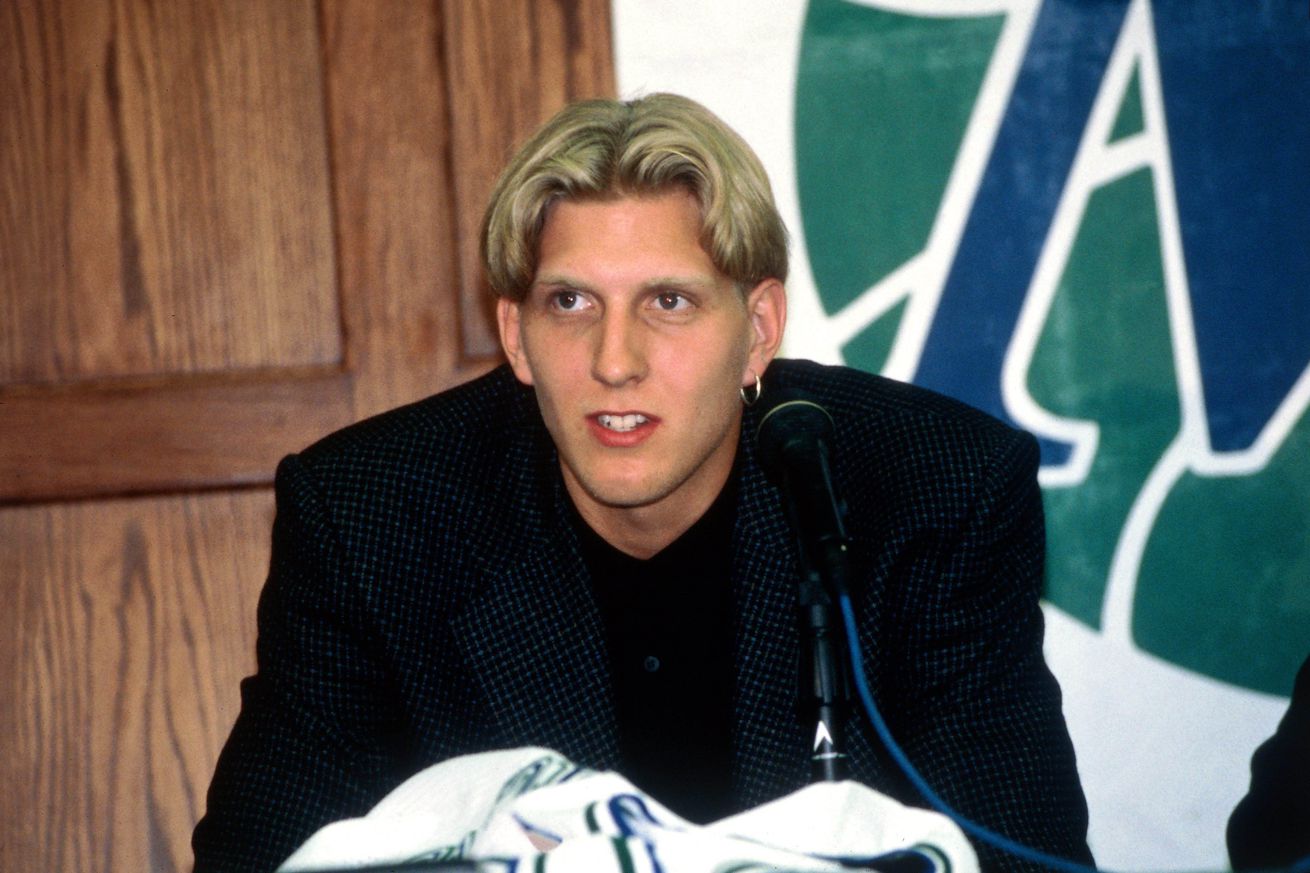
A remarkable shift for the Mavericks, who used to be known for its international outlook.
The last time the Dallas Mavericks roster featured no European players, the year showed 1995, according to my deep-dive in Mavericks rosters through history.
That’s 30 years ago.
Since then, the Mavericks have become known for its international outlook and European superstars. But a shift is happening in Dallas right now. I’ll get back to that.
More recently in 2021, the Dallas Mavericks’ international focus increased, as they tied for second most international players in the league (seven), including five Europeans.
In 2023, that number was up to eight international players, tying the Oklahoma City Thunder for most international players in the NBA.
Two years later, the roster is now down to three international players – at this point – Australian Dante Exum and Canadians Dwight Powell and Olivier Maxence-Prosper (not counting Kyrie Irving, who is Australian/American).
And even more notable for an organization who has been led by European superstars since 1998 – there are no Europeans on the roster at all.
It was a sign of exceptional international outlook when the Dallas Mavericks acquired Dirk Nowitzki in 1998 and decided to go all in on him as their future franchise player. Since then, the Mavs have been known to embrace international players and look especially towards Europe to find new talent.
When they needed someone to take over from Nowitzki, they looked to Europe once again, drafting Slovenian Luka Doncic, who was a superstar in his own right even before he landed in the NBA. All along the way, the Mavs had a number of international players fill multiple spots around the two franchise stars.
That, however, seems to be a thing of the past for Dallas. As the year turned 2025, only two Europeans were left on the roster, and both (Slovenian Doncic and German Maxi Kleber) were traded to the Los Angeles Lakers in the Luka Trade of February first. Left were Exum, Powell and Prosper.
But before this year’s drastic decrease in international flavor in Dallas, the Mavericks roster had remained somewhat steady at between six and eight international players from 2018 until the upcoming season.
Back in 2018, it seems the prior leadership of the Mavericks started looking beyond the US even more, and built a team of a mix of American and international players, a strategy, which was often criticized because they seemed to go for the cheapest option, but which also helped the young Slovenian franchise star feel more comfortable and supported after he arrived in 2018. Doncic has credited especially Dwight Powell, Maxi Kleber and Dirk Nowitzki for helping him acclimatize in the US, he has said in interviews in the past.
Adding players like Serbian Boban Marjanovic, who Doncic – a Serbian speaker – shared quite a lot of familiar cultural values with, to the roster, as well as a list of other Europeans through the years, the group in Dallas and around Doncic seemed to have more European culture and experience than American NCAA connections.
Players like Latvians Kristaps Porzingis and Davis Bertans, French Frank Ntilikina and notably Doncic’s teammate from Real Madrid, Facu Campazzo.
But as the management of the Mavericks changed in 2021 to have Nico Harrison and Jason Kidd at the helm, a shift in focus seemed to happen. Slowly at first, but with the Luka Doncic for Anthony Davis trade, it became clear. The shift back to the American system and way of thinking in Dallas was now evident for everyone to see.
“They get rid of everybody I like,” Doncic told an espn source, after the Mavericks fired former director of player health and performance Casey Smith in 2023, strength coach Jeremy Holsopple and manual therapist Casey Spangler in 2024 – staffers that Doncic preferred working with.
At the same time, Serbian assistant coach (and former Slovenian national team head coach) Igor Kokoskov, was let go in 2022. Slowly, but steadily, the organization not only got rid of “everybody” Doncic liked on staff, but the roster featured less and less international players, and even less Europeans. Until there were only two.
Doncic and Kleber getting traded to LA in February didn’t only signal a new approach, it cemented it. The Dallas Mavericks were now an American team, and the drafting of the most likely next American superstar in Cooper Flagg was just the next step. An opportunity blindly lucked into, some may argue, but a fact nonetheless.
And as the Dallas Mavericks get ready to start their training camp in a couple of months, it will be the first time in 27 years that a player from Würzburg, Germany, will not be on the roster, as both Nowitzki and Kleber hail from the Bavarian town.
The last sign is clear for everyone paying attention. The infinitely popular Dirk Nowitzki is barely involved with the organization anymore. If anything signals a change for the Mavericks, that’s it. The era of international outlook and European talent seems to have come to an end in Dallas – at least for now.